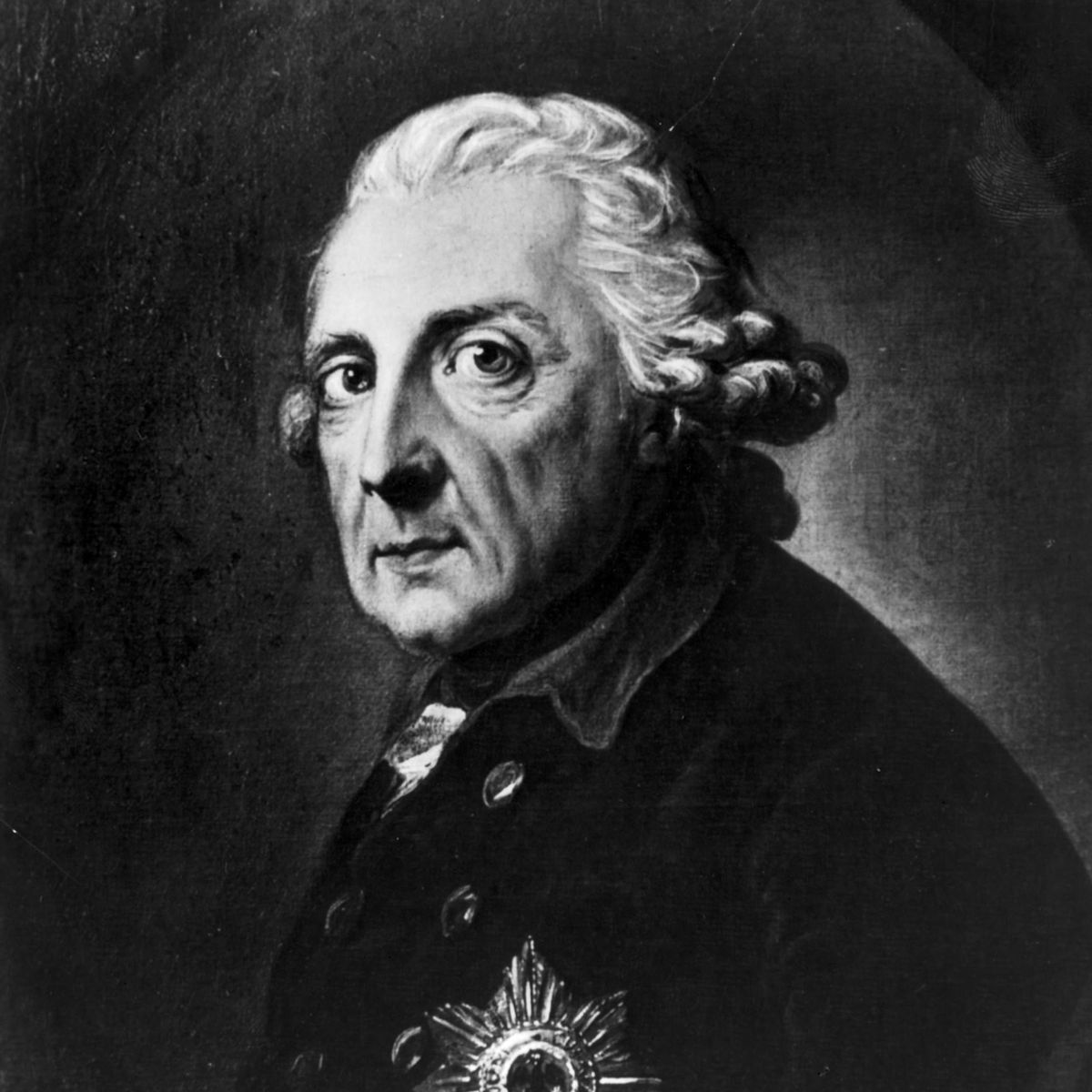You are viewing the article Frederick II at Lassho.edu.vn you can quickly access the necessary information in the table of contents of the article below.

(1712-1786)
Who Was Frederick II?
Frederick II inherited the Prussian throne in 1740 and established control of Silesia in 1745. The Seven Years’ War threatened to destroy Prussia’s status, but ended with Silesia still in Frederick’s control. During his time on the throne, Frederick increased Prussia’s territories and military power. He died in 1786.
Early Life
Frederick was born into the House of Hohenzollern on January 24, 1712, to Frederick William I of Prussia and Princess Sophia-Dorothea — the sister of George II of Great Britain. The couple enjoyed a political marriage and not much else. Frederick William was authoritarian and quick-tempered; Sophia was well-educated and loved the richness of life. Unlike in every way, Frederick’s parents sought to raise him in their own, if totally different, images.
During Frederick’s childhood, his mother brought him many of the treasures of the Enlightenment. He spent his early years with tutors, learning poetry, French culture, and the Greek and Roman classics. However, his father chafed at such notions and pushed to have his son educated in the practical matters of running and defending a state. When he came of age, Frederick was forced into the army and set on a course of military science and governance.
Frederick William abused his son, often beating and humiliating him for trifling reasons. Finally, in 1730, at age 18, Frederick attempted to escape with childhood friend Hans Herman von Katte. They were caught and arrested for treason, however, and Katte was beheaded in Frederick’s presence. His father pardoned Frederick, but placed him as a junior official in local administration to learn the ways of government.
After a tepid reconciliation, Frederick’s father arranged for him a marriage to Elizabeth Christine of Brunswick-Bevern, in 1733. Frederick quickly separated from her and, for the rest of his life, showed no interest in women. Frederick ascended the throne upon the death of his father in 1740, and abandoned peaceful pursuits to make his place in the geopolitical intrigue of 18th-century Europe. Fortunately, his loathsome father left Frederick with a strong army and ample funds.
Frederick the Great
In 1741, Prussia consisted of scattered territories across central Europe and few significant allies save for Great Britain. Sensing weakness in the Austrian Empire, Frederick deceived Habsburg Queen Maria Theresa to allow his armies to occupy Lower Silesia in exchange for protection from France, Spain and Bavaria. He then proceeded to invade key areas, forcing Maria Theresa to cede almost all of Silesia by 1745.
In 1756, Austria, backed by France and Russia, tried to regain control of Silesia. Frederick struck preemptively, invading Saxony, and with his ally Great Britain started the Seven Years War. In a series of battles to the death, Frederick lost territory, then gained it, then lost it again. In 1760, Austro-Russian forces occupied Berlin, and Frederick, reduced to despair, considered suicide. However, the death of Empress Elizabeth of Russia placed advocate Peter III on the throne and Russia withdrew from the war. Although Frederick did not gain territory, the ensuing treaty allowed him to retain Silesia and made him popular throughout the many German-speaking territories. Prussia became one of the preeminent powers in Europe.
Domestically, Frederick’s Enlightenment influence was more evident. He reformed the military and government, established religious tolerance and granted a basic form of freedom of the press. He bolstered the legal system and established the first German code of law. Of all things, Frederick the Great, as he became to be known, left a legacy of devotion to Germany that set the example for leaders into the 20th century.
QUICK FACTS
- Name: Frederick II
- Birth Year: 1712
- Birth date: January 24, 1712
- Birth City: Berlin
- Birth Country: Germany
- Gender: Male
- Best Known For: Frederick II, known as Frederick the Great, was Prussia’s king from 1740 to 1786. By winning wars and expanding territories, he established Prussia as a strong military power.
- Industries
- World Politics
- War and Militaries
- Astrological Sign: Aquarius
- Nacionalities
- German
- Death Year: 1786
- Death date: August 17, 1786
- Death City: Potsdam
- Death Country: Germany
Fact Check
We strive for accuracy and fairness.If you see something that doesn’t look right,contact us!
CITATION INFORMATION
- Article Title: Frederick II Biography
- Author: Biography.com Editors
- Website Name: The Biography.com website
- Url: https://www.biography.com/political-figures/frederick-ii
- Access Date:
- Publisher: A&E; Television Networks
- Last Updated: April 20, 2021
- Original Published Date: April 2, 2014
QUOTES
- A crown is merely a hat that lets the rain in.
- An educated people can be easily governed.
- Don’t forget your great guns, which are the most respectable arguments of the rights of kings.
Thank you for reading this post Frederick II at Lassho.edu.vn You can comment, see more related articles below and hope to help you with interesting information.
Related Search: